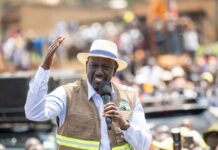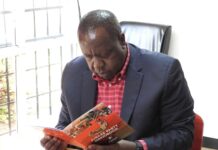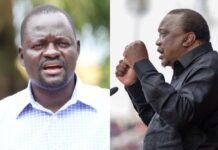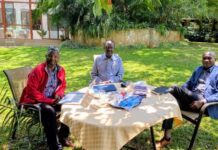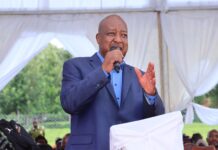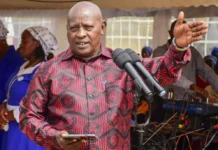Written By Lisa Murimi
President William Ruto has called for greater accountability from Kenya’s Director of Public Prosecutions (DPP) and the Judiciary in combating corruption.
Speaking during his third State of the Nation address on Thursday, Ruto expressed frustration over the frequent collapse of high-profile graft cases and the inefficiency in handling corruption-related trials.
“It cannot be the case that the DPP keeps dropping cases because, somehow, they are unable to produce witnesses,” Ruto said, referencing recent dismissals of cases involving billions in alleged fraudulent transactions, such as the NYS scandal and irregular payments for the Ronald Ngala Utalii College project.
He also criticized the judiciary for allowing suspects to manipulate the system through anticipatory bail and protracted trials.
“There is no reason for corruption cases to drag on for years, especially when election petitions are resolved in six months,” he noted.
Ruto emphasized that corruption undermines social justice, sustainable development, and his Bottom-Up Economic Transformation Agenda.
He urged institutions tasked with fighting corruption to embrace accountability and meet public expectations.
While pledging government support for judicial digitization and automation, Ruto warned against using institutional independence as an excuse for inaction.
“We must work together to eradicate corruption and protect national integrity,” he concluded.
The Director of Public Prosecutions (DPP) has recently withdrawn high-profile fraud charges against several individuals and entities, raising questions about the integrity of anti-corruption efforts in the country.
Notable cases include the dismissal of KSh 7.6 billion charges against businessman Yagnesh Devani and his company, Triton Petroleum, alongside similar requests involving former government officials linked to substantial financial misconduct.
Additionally, in August, the DPP called for a withdrawal of an KSh 8.5 billion graft case against former Tourism Cabinet Secretary Najib Balala, further raising eyebrows about the commitment of the prosecution to hold corrupt individuals accountable.
The leniency demonstrated by the DPP towards corruption suspects has not been lost on commentators, particularly given that some former governors embroiled in corruption scandals have unexpectedly found themselves with the DPP as an ally.
For instance, in a case involving former Samburu governor Moses Lenolkulal, who is accused of misappropriating KSh 83 million, the DPP sought to withdraw the case.
The criticism of the DPP’s handling of high-profile corruption cases does not end there. In the embezzlement case against former Nairobi governor Mike Sonko, a series of missteps by the DPP culminated in the case’s collapse, with allegations surfacing that the prosecution failed to pursue the charges as vigorously as needed.
Furthermore, when the Ethics and Anti-Corruption Commission (EACC) recommended charging former Kakamega governor Wycliffe Oparanya over corruption matters, the DPP purportedly sought to close the case due to a lack of sufficient evidence.
Currently, Oparanya serves as the Cabinet Secretary for Co-operatives, and the looming question of whether the DPP will choose to pursue charges against him remains unanswered.










